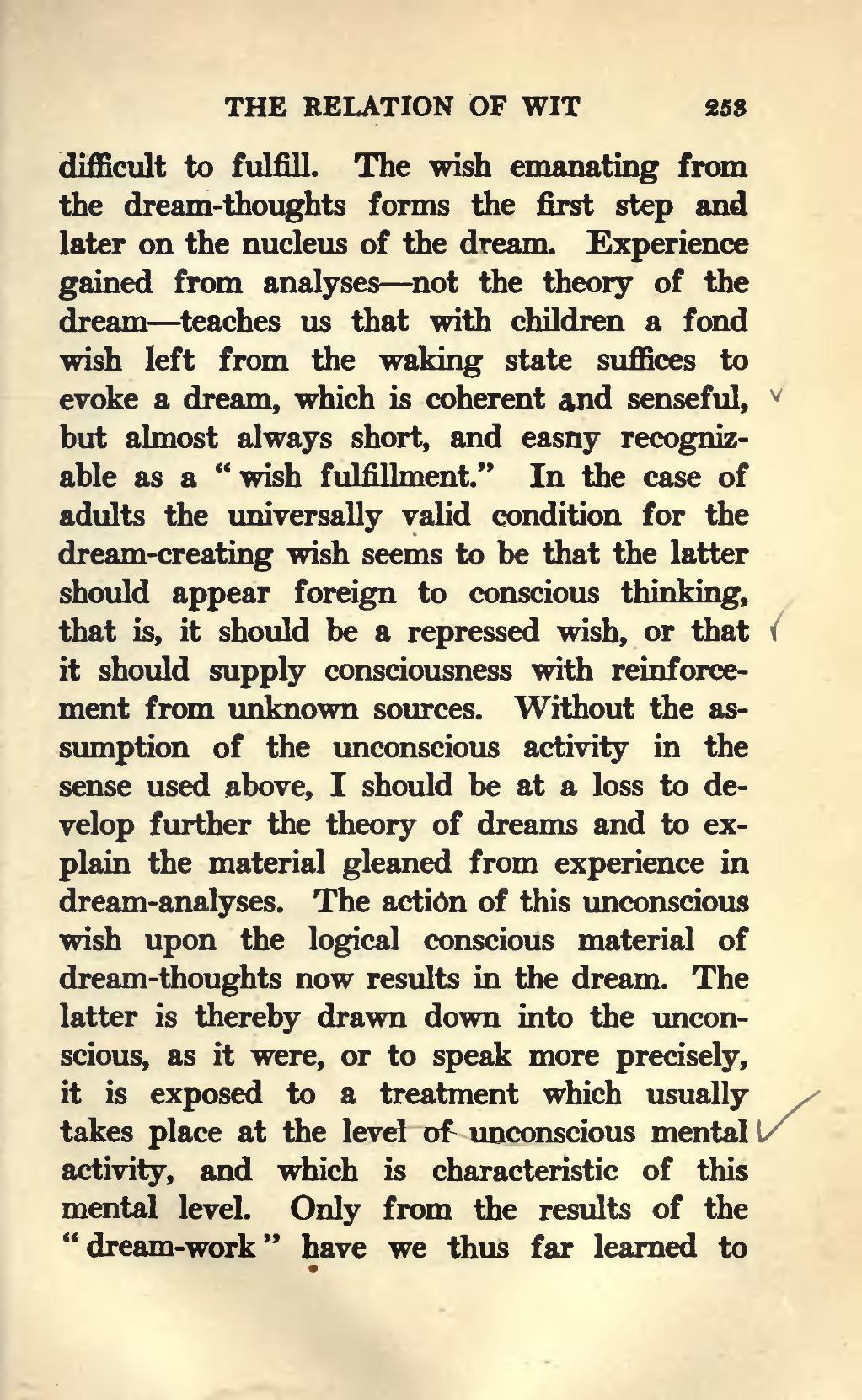to fulfill. The wish emanating from the dream-thoughts forms the first step and later on the nucleus of the dream. Experience gained from analyses—not the theory of the dream—teaches us that with children a fond wish left from the waking state suffices to evoke a dream, which is coherent and senseful, but almost always short, and easily recognizable as a “wish fulfillment.” In the case of adults the universally valid condition for the dream-creating wish seems to be that the latter should appear foreign to conscious thinking, that is, it should be a repressed wish, or that it should supply consciousness with reinforcement from unknown sources. Without the assumption of the unconscious activity in the sense used above, I should be at a loss to develop further the theory of dreams and to explain the material gleaned from experience in dream-analyses. The action of this unconscious wish upon the logical conscious material of dream-thoughts now results in the dream. The latter is thereby drawn down into the unconscious, as it were, or to speak more precisely, it is exposed to a treatment which usually takes place at the level of unconscious mental activity, and which is characteristic of this mental level. Only from the results of the “dream-work” have we thus far learned to know
